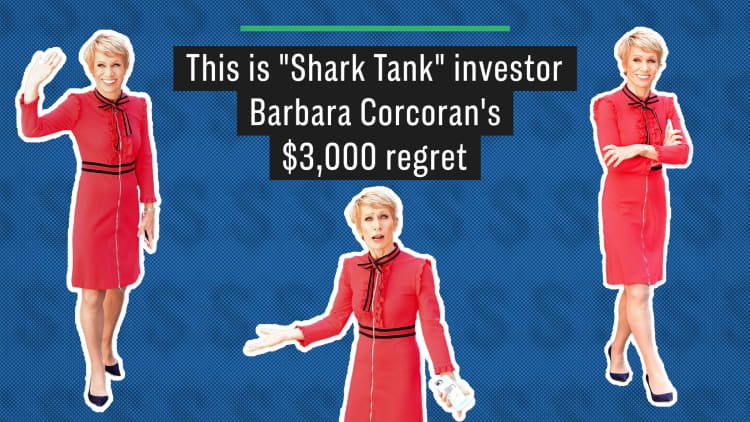I'm just like you. I get up each morning, kiss the kids goodbye and head to the office. I spend my days shuffling between meetings, doling out opinions and action items, hoping my next project/deal/strategy will be the one to get me that promotion to help with the kids' education fund. I respond to texts from home throughout the day: "Can you pick up coffee on your way home? When will you be home tonight (read: when can the rest of us eat dinner)?"
At the end of the work day, I commute home on the NYC subway taking note of the people surrounding me; all of us staring at our screens eagerly awaiting the next train stop so our emails will send, our news feeds will refresh, our texts will go through. As I climb the steps to my front door, I take a deep breath to prepare for "home mode" and to "be present" like all the meditation apps tell me. Stop obsessively checking email. Don't immediately ask my son about his chemistry exam. Prepare for the dog to pee a little on the floor because she's so happy to see me (gross, but also kind of awesome).
I walk into the kitchen and see my better half deftly whipping up dinner, music playing and an open bottle of wine waiting. I know that without this person in my life, my world wouldn't turn so smoothly. The kids wouldn't get shuffled to and from school and math tutors and track practice and doctors appointments and gymnastics and sleepovers. My daughter wouldn't be dressed in the right theme colors for Spirit Day at school. The ConEd guy wouldn't have access to read the meter. The newspaper subscription wouldn't be placed on hold while we're on vacation. The school wouldn't have a go-to field trip chaperone. Certainly the kids wouldn't feel so secure in their lives. Does this scene feel familiar?
I'm just like you. I make up half the population and half the workforce. I'm highly educated with career ambitions that abound and a relentless focus on providing for my family. I'm part of the 41% of Americans who are financially leading their household. Oh, and I'm a woman. I'm a breadwinning woman.

As you read the beginning of this story, did you picture a man or a woman? If you presumed I was a man, that's OK. We're all guilty at times of making assumptions about people without intending harm.
As many companies are in the midst of their compensation planning cycle for 2020, I want to highlight this bias, whether it's conscious or unconscious. While this may not be intentional nor malicious, the data shows that at work, women don't have equal opportunity for assignments or earnings. Yet, in nearly half of American homes, women are either the sole or primary earners. When leaders across corporations make compensation decisions, it's important to be aware of how prevalent this household arrangement is and how much decisions on raises, equity, promotions and opportunities can impact families.
In nearly half of American homes, women are either the sole or primary earners.
Which is why, as we head toward a new decade, ask yourself and the leaders around you: Are you projecting earnings bias toward the women of your organization? Are you assuming that because she recently came back from maternity leave, or is expecting a baby, that she may not want that big project? Are you assuming that she has a partner at home who is equal or higher earning? Has it crossed your mind that "men take risks and women don't" as has been alleged against a WeWork executive? Do you assume that she is not as geographically mobile or as ambitious or as financially responsible for her household as her male colleagues? If any of these thoughts have drifted into your head, they've likely come out through your fingers as you click here and there to nominate your promotions and distribute your raises.
There's countless evidence to back this up. There's the well documented gender pay gap. There's the "motherhood penalty" where a mother's earnings decline up to 10% (per child!), in direct contrast with the "fatherhood bonus" where a man's earnings actually increases by 6% when he becomes a father. Then there's the sociological disadvantages, where from very early childhood, boys and girls are taught how to think and talk about money very differently. Girls are taught to "save" while boys are taught to "invest."
Girls are told that talking about money is unladylike, and we hold onto that into adulthood. Sallie Krawcheck talks about how women are more likely to have sex by a third date than they are to discuss money! Regardless of gender, everyone has a different relationship with money. But this shame, core to her upbringing, underpins a woman's entire experience. So how do you think years of this message plays out in salary negotiations?

The compound impact over a career of less pay for equal work couldn't be more staggering. With less retirement savings and a longer life expectancy, this smaller pile of money needs to last longer. Additionally, women's earnings peak about 10 years earlier, around 44 for women versus 55 for men. Women's health-care costs are also higher than men's. And that old advice from childhood still persists, as adults women are encouraged to save our money rather than to invest for wealth compared to our male counterparts. Add on the "pink tax" — a phenomenon where products, such as razors, clothing, services and even children's toys, that are equivalent in all other ways are marked up for women — and how can you ever expect us to get ahead?
I doubt a bunch of stats will change your mind. But maybe a personal appeal will. I write this piece to the attention of all the decision makers of all industries, many of you who are fathers and know the pressure and importance of providing for your family. I ask you to keep that feeling, that pressure, in mind as you go into hiring negotiations, annual compensation planning and opportunity distribution, and, of course, as you interact with your female employees.
Remember that not only are women in the pipeline (yes, we're here!), educated (yes, we are!) and capable (yes, we can!), but we're almost as likely to be financially leading our household as our male counterparts. We just may not be as eager to speak up about it. In fact, while women outearn men in 25% of all couples, it's been found that when "she makes more" both men and women lie about it.
I write this piece to the attention of all the decision makers of all industries, many of you who are fathers and know the pressure and importance of providing for your family.
Remember, that the mother of three is equally as likely to have the same financial responsibilities for her family as the father of three. And when you discuss her compensation, think of the decades of socialized behavior that she has had to overcome to even ask for, let alone fight for that raise, promotion or new opportunity.
This is how you, individually and specifically, can be a part of the change that is way overdue. And this is why I've decided my life's work is to be unabashedly vocal about my family's setup; where we challenge the traditional gender norms of being a provider across financial, logistical and emotional provisions. So yeah, I'm not a man but in the traditional sense of being my family's "provider," I am. I'm just like you. Just make sure I'm paid like it.
Bethanie is Director of Global Partnerships and Founder of Breadwinning Women at Google. She lives in Brooklyn, NY with her family. Connect with her @bethaniebaynes on Instagram or Twitter. The views and opinions expressed in the article are those of the author, and don't necessarily represent those of her employer.



